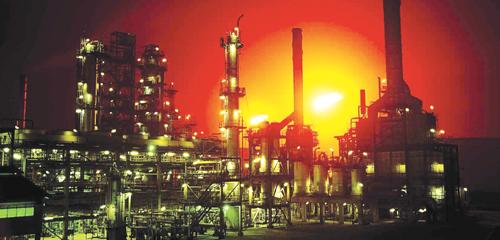Major hotels prepare for blackouts next month

PHUKET: Major retailers, hotels and other businesses are planning strategies to cope with a possible electricity crisis in April, preparing to reduce power consumption to prevent blackouts and losses in revenue.
A large supply of natural gas from Myanmar will be disrupted from April 4-12 as two drilling rigs in the Andaman Sea are shut down for repairs. Other fuel sources may not be enough to keep power-generating plants going at full capacity.
Viboon Kromadit, Amata Corporation chief marketing officer, said an electricity shortage during the hottest time of the year would affect industrial plants heavily, including those at Amata’s two industrial estates. About 60-70 per cent of its nearly 900 plants would be affected if there were a blackout, he said.
Ratchaburi Electricity Generating Holding has two power plants in the western province of Ratchaburi, which consume 525 million cubic feet per day of natural gas from Myanmar and have total capacity of 3,645 megawatts. When the supply from the Yadana field is stopped in April, the two plants will be powered by diesel and bunker oil, said Noppol Milinthanggoon, Ratchaburi’s chief executive officer.
Some generating units are already prepared for the fuel switch. Ratch has stockpiled 63 million liters of bunker oil and 23 million liters of diesel, sufficient for six or seven days’ operation.
Teerayuth Chirathivat, CEO of Centara Hotels and Resorts, said it was closely monitoring the energy authorities’ updates on what areas might be affected and for how long. He said all the company’s hotels could cope for awhile with a cut in power supply, as all had their own generators. However, if a cut persists, it could be a problem.
“We may need to rely more on alternative power. At present, all our hotels use solar power for partial water heating, but this could not satisfy demand for other purposes,” he said.
He noted that electricity costs now amounted to 6-7 per cent of revenue for all Centara’s properties in Thailand. Of the total, air-conditioning accounted for 60-70 per cent.
“If the government wants our help, we’re ready to help. We have been complying with the requirements, like keeping the conference rooms’ temperature at 23 degrees without making clients uncomfortable.”
Tanongsak Somwong, president of the Tourism Association of Koh Samui, said that last year’s blackout on the island had taught operators to prepare for the worst (click here for article).
— The Nation
Latest Thailand News
Follow The Thaiger on Google News:


























